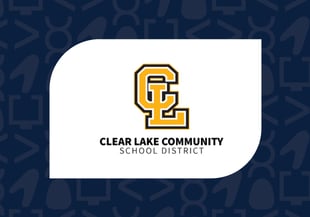When Project Lead The Way (PLTW) presented Leggee Elementary School in Huntley, Ill., with the opportunity to pilot PLTW Launch, the school’s science curriculum committee “jumped at the opportunity” because the school was “thirsty for STEM education.” We invited Michael Wheatley, PLTW Launch Lead Teacher at Leggee, to share his experience piloting PLTW’s program for kindergarten through fifth grade.
Consolidated School District 158 is ecstatic to be able to join the Project Lead The Way (PLTW) Launch pilot program. Consolidated School District 158 is reviewing, researching, and aligning its science curriculum standards to the Next Generation Science Standards and developing a STEM Academy at Huntley High School.
When the science curriculum committee came across the opportunity to become part of this pilot program, we jumped at the opportunity. We are eager to implement the STEM, project-based approaches that PLTW has for elementary students. At the time the pilot program began, Huntley High School was one of only six schools in the state to offer the PLTW Biomedical Science program. Our Biomedical Science program grew fast with 146 students enrolled in the first course, Principles of Biomedical Science, and currently there are 200 students in PBS for its second year, with 97 students in Human Body Systems. Simply put, we had a population here in Huntley that was thirsty for STEM education. As a result, a committee is also studying a possible PLTW Engineering implementation at Huntley High School. The district values the need to develop students that have 21st century skills in the ever-changing global economy.
Our goal is to keep this passion for STEM alive, and we want to harness the scientific passion in children at an early age. PLTW Launch is a great opportunity to see how this can work in our K-5 setting. As a district, we selected Leggee Elementary as our pilot school. Leggee was ready and willing to participate, and since it is the sole K-5 school within the district, it was easiest to implement this program there with all grade levels in one building. We selected six teachers, one from each grade level, to pilot the modules. The lead teacher for the pilot program was our Science Curriculum Director, and he co-teaches the modules with each grade-level teacher.
With several months under our belts, there is time to reflect back upon the past three modules. We are already noticing the benefits of STEM in our classrooms. Students love participating in hands-on activities, and they love designing solutions to problems. Fourth grade students can describe, in detail, the transfer from potential to kinetic energy and can design a car to keep an egg safe in a collision. Second grade students all enjoyed their apple juice Zipzicles that were left at room temperature for over an hour; these students now understand conductors and insulators and which materials will best keep a popsicle frozen. Finally, our kindergarteners can look at various scientific materials and explain the structure and functions of each. All students who participated in this pilot value the role of engineers in the world and see the importance of detailed and research-driven designs. Our students understand complex scientific concepts aligned to the Next Generation Science Standards because they have been hands-on when using science, technology, engineering, and mathematics to help solve real-world problems.
The students of District 158 own the scientific information now; they are ready and excited for their next challenge. We at District 158, specifically Leggee Elementary, look forward to our next design challenges as well.

